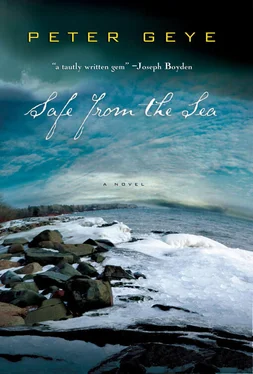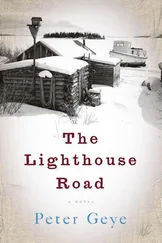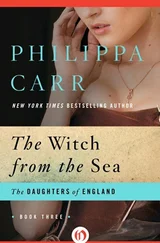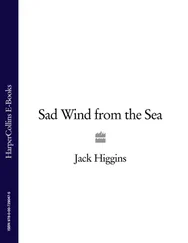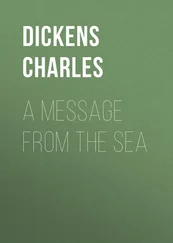“To say the least. But you’d have to tell someone. The sheriff?”
“Tell them what?”
Solveig shook her head as if to erase the thought from her head. “What are we talking about, anyway? This is nuts.”
Again Noah looked at the shed. “It is and it isn’t.”
She gave him a look half imploring.
“He’s never asked anyone for anything. Not ever. Does he deserve it? Do we owe it to him?” he asked.
She leaned against her truck. “When he first mentioned it I thought he was completely bonkers,” she said. “Hearing him talk about it, I’m not so sure.”
“That makes two of us,” Noah said.
They looked at each other.
“What would Mom do?” Solveig said.
“Whatever Dad wanted. Without a second thought.”
“You’re right about that.”
There they stood. Noah hoped his sister would make a declaration on the matter, but she did not. His gaze kept falling on the shed, drawn by the hideous and marvelous trove of its contents. Each moment deepened his mystification.
“I’ll hurry back,” she said.
Noah looked at her, understood her complete lack of confidence in the utterance. “You have to tell me what to do if you don’t make it back in time.”
She closed her eyes tightly. “I couldn’t do it, Noah.” She opened her eyes. “I picture myself alone up here, with Dad, that terrible contraption he’s making. .”
“That’s no answer.”
“It’s the best I can do.”
HER BID TO take Olaf with her had been rebuffed as swiftly as it had been offered. Noah and Olaf stood shoulder to shoulder in the yard and watched as her SUV bounced up the road. When it disappeared beyond the last curve Noah turned to his father. “If you’re up to it, why don’t you show me how that contraption works?”
Without a word Olaf led him to the shed. There he explained how the tubing was attached to the barrel. He demonstrated how the barrel should rest on his chest while the tubing extended down the length of his legs. He showed him how the chain should cross his back, under his arms — which were to be bound behind his back — and through the tubing. Noah stood with his hand on his chin trying to comprehend the instructions.
“Do you think it will work?” Olaf asked.
“What happens after you’ve been down there for a while? What about decomposition, things like that?”
“The water is cold enough at that depth I won’t decompose. Cold and dark both.”
“How will I know where to do it?”
“Anywhere under the falls is fine. It’s plenty deep over there.”
“I just toss you into the boat and row over there? Pitch you over the side? Between you and the barrel, that’s a lot of weight.”
Olaf pulled something like a section of dock from between the table and the wall. “This will fit across the boat, gunwale to gunwale. Lay me across it. When you get to the other side of the lake slide it right over. Keep your weight opposite the side you drop me. The boat should be okay.”
Noah stood dumb for a moment, trying to imagine actually doing it. “What about everything that goes along with it? I mean, what about a death certificate? What about notifying Social Security and Superior Steel? How can I drop you over there and still take care of that?”
The elegance of his father’s earlier plea was getting lost in the crude details. Olaf didn’t know about death certificates and pensions, nor did he seem to care. “You’re smart, you’ll figure it out,” he said. “I still have to get the chain threaded in there. I’ll do that tomorrow. Right now I need to rest.”
Noah led him out of the shed and helped him across the yard. Inside, sitting opposite each other in the sofa and chair, Noah said, “What if I can’t do it?”
Quietly, Olaf said, “You will.”
III. The Darkest Place in the Night
Five years after the wreck of the Ragnarøk , a poet from the Ontario town of Point au Baril on Georgian Bay and a woodcut artist from Duluth collaborated on a short book to commemorate the anniversary of the disaster. It was Noah’s favorite of the many books written about the wreck.
Five hundred copies were printed and bound in the woodcutter’s garage. It was a poem — billed as an “epic”—called The Darkest Place in the Night , and except for friends of either artist or aficionados of the Superior shippery, not many people knew about it. That changed five years later, when the Herald ran a feature on the ten-year anniversary of the wreck. Rather than leading with the customary, now famous photograph of the washed-up survivors — the same photograph that hung in the maritime museum in Duluth — it printed one of the woodcuts from the book and the last two lines of the poem. The woodcut showed three abstract figures clutching the icy gunwales of a lifeboat in portentous, black, fine-lined seas. A striking image. The lifeboat rode the crest of a wave, and each of the three faces diminished into abstraction so that only the first was clearly a face at all, one meant to exude the nightmare. The clear-faced figure raised a giant Thorlike hammer above his shoulders, poised to strike the ice from the boat. For Noah, the image captured his own sentiment about what had happened, or how he imagined it had happened.
The poem itself became something like a belated anthem for the wreck, its final lines the standard epigraph for anything written about it. Strange, Noah thought, watching his father sleep with difficulty on the sofa in the wake of Solveig’s leaving, how one verse of an obscure poem could become so automatically associated with the fact of the disaster, but it had. Enough so, in fact, that even for Noah the famous quotation and the wreck had become irrevocably linked. In the five minutes he’d been looking at the book he’d managed to memorize again the last couplet. He sang it to himself: The slaves of the lake beseeching the light,/Adrift in the darkest place in the night .
After they’d finished in the shed, Olaf had lain down to sleep on the sofa without a word of any sort. Noah, at a loss again, tidied the house, refilled the wood box, and took the thawing cash from the Mason jars. His plan was to deposit it first thing in the morning. He should have been awed both by the sum of his inheritance and the manner in which Olaf had presented it, but the fact of the matter was that nothing surprised him anymore. The week had cured him of his wonder. Now he sat with the book open on his lap, staring at the page.
“That guy came to visit me once,” Olaf said, startling Noah, who had almost dozed off himself, the heat in the house stunning again.
“The poet or the artist?”
“The poet. Said he wanted to make sure he got it right.”
“What did you say?”
“I told him I didn’t understand his poem, that I was more of a plainspoken sort.”
Noah tried to imagine the conversation, tried to imagine the poet’s horror in confronting his father. “You didn’t toss him out, I hope.”
“Why should I? He was a nice guy.”
“I prefer the woodcuts to the poem,” Noah said. “I like this one.” He showed him the opened page.
Olaf looked at it over the rim of his glasses and nodded his head as if to agree. “Whatever I thought about the poem, I liked the title. It’s a good title.”
“The other night you were telling me about the wreck. You never told me what happened once you were in the lifeboat.”
“I ran out of gas, didn’t I?”
“I think we both did.”
Olaf struggled with the afghan. Noah helped it across his shoulders.
“Why did you think it was a good title?”
“What?”
Читать дальше
